Hundreds of Taylor University students and alumni, including two former board members, are petitioning the evangelical school to reinstate Professor Julie Moore, whom they say is being wrongly removed for teaching on racial justice.
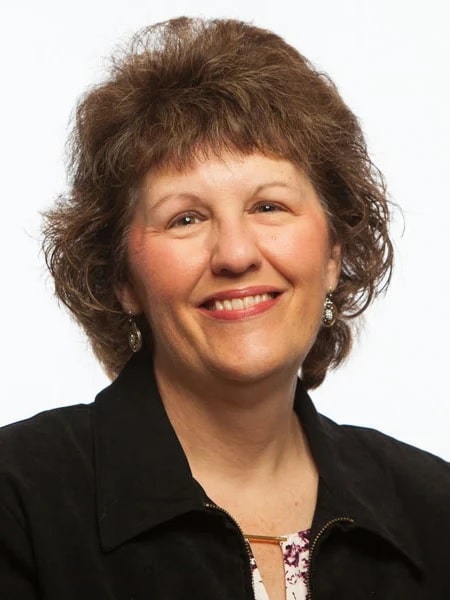
In a widely-shared article and interview published earlier this week, Moore, associate professor of English and director of the Writing Center at Taylor since 2017, shared that her contract with the school will not be renewed. Reportedly at issue is Moore’s inclusion of a quote by historian and author Jemar Tisby on her syllabus, as well as assigned readings highlighting social justice and race issues.
Moore will continue to teach at Taylor until May 18, the end of the spring semester.
Many in the Taylor community and beyond quickly responded. A student-initiated petition on Change.org, which launched Monday, has garnered over 850 signatures as of publication time. On Wednesday afternoon, a group of Taylor alumni similarly posted an Open Letter, which has garnered over 670 signatures.
The 1,038-word open letter describes a “rapid process from accusation to conclusion of Professor Moore’s employment (that) was opaque and unethical.” Alleging that process exposed a “breach of ethics,” the letter states Taylor leadership “falsely accused Professor Moore of misconduct,” failed to empower her, and attempted to silence her.
Your tax-deductible gift helps our journalists report the truth and hold Christian leaders and organizations accountable. Give a gift of $30 or more to The Roys Report this month, and you will receive a copy of “Hurt and Healed by the Church” by Ryan George. To donate, click here.
At least two signees of the open letter have past affiliation with the Taylor University Board of Trustees.
One signee is Taylor graduate Joseph Brain, professor of environmental physiology at Harvard University T.H. Chan School of Public Health. Bain served as board member for two decades, ending in 2019.
Another past board member who signed the letter is Chicago-area administrative pastor Mark Soderquist.
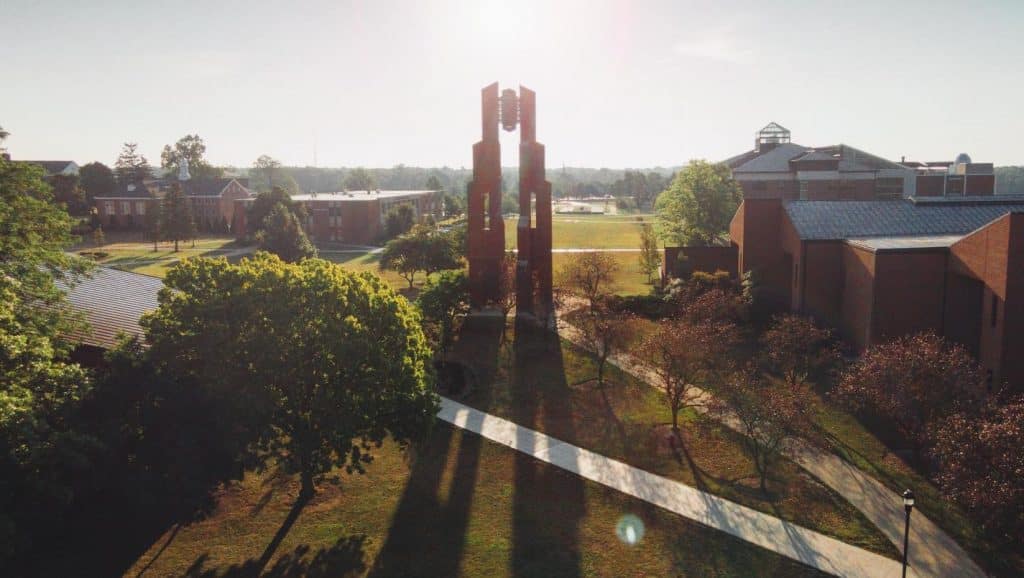
Taylor alum Eric Moore, Ph.D., who works at a nonprofit organization in Baltimore, Maryland, told The Roys Report (TRR) that he helped coordinate the letter to “speak up and speak clearly.”
“Several of us alumni were frustrated by what we see as a decline of civility, leadership, and values at Taylor broadly and about the injustice toward a good person and professor specifically,” said Eric Moore, who is not related to Julie Moore.
TRR reached out to a media spokesperson at Taylor University for comment but did not receive a response.
Also signing the open letter is Diane Langberg, Ph.D., who graduated from TU in 1970 and was subsequently recognized with the university’s Distinguished Alumna Achievement Award.
“A voice has been silenced—a voice that invites us into the lives and struggles of others,” Langberg told TRR. “That is what our Lord did. He became like us. He entered into our world and our struggles. We are not like Him when we silence others and do not want to enter in and learn from them.”
The letter, which additional Taylor community members may still sign, was delivered via email on Friday at noon to current Taylor leadership including Provost Jewerl Maxwell.
Moore amplified ‘historically underrepresented voices’
Taylor’s decision not to renew the contract with Professor Moore, who is on a non-tenure track, surprised her. In fall 2021, her performance review, reflecting a unanimous vote of the English department, affirmed Moore as a “highly valued professor.”
Moore learned of the contract non-renewal soon after a January meeting with Maxwell, in which he expressed concerns about the content of her English composition class.
“Students this fall (were) still asking after two weeks of class, ‘Is this a class on composition or is this a class on the sociology of race?’ And this office hears it,” Maxwell told her in the meeting.
Throughout her 30-plus-year teaching career, Moore said she has taught composition using themes of racial justice. She added that, during her rigorous interview process in 2017, this thematic focus of her teaching was a point of discussion. Maxwell joined the staff of Taylor as provost in October 2021.
During her meeting with Maxwell in January 2023, Moore pressed the provost to name which readings in her class did not reflect “balanced material.” Maxwell replied: “Jemar Tisby is the main focus.”
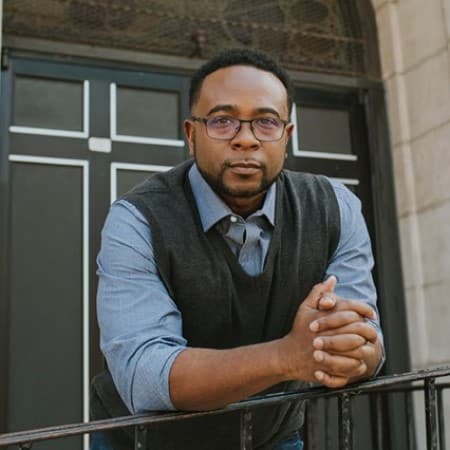
However, Moore noted that her syllabus only quoted Tisby, a Ph.D. historian at Simmons College of Kentucky, but did not assign any of his works. The course’s assigned readings included “Letter from a Birmingham Jail” by Martin Luther King Jr. and a landmark essay, “The Condition of Black Life Is One of Mourning,” by Claudia Rankine.
Tisby, who broke the story of Moore’s contract non-renewal on Monday, also spoke out this week. “My disappointment is for the professors who are the casualties of these cancel culture models,” he said. “They’re faithful teachers and they don’t deserve this.”
One of the signees of the student petition, who requested anonymity to avoid retaliation, pointed to the specific issues at stake.
The student, who is a junior in the English department, said: “As a student of color, I’ve felt gaslit multiple times at Taylor, by administrative statements especially. They claim to care about diversity and yet refuse to have honest conversations about race and racism within their academic departments and on campus with students.”
Another Taylor alum, Geoffrey Taylor, Ph.D., a music teacher in New York City, said he has heard some dismiss Moore’s teaching approach as reflecting “wokeness.” He said the term is used “to discredit or discount anything they don’t like” or history that makes them feel uncomfortable.
“If someone believes that trying to amplify, celebrate, and engage with historically underrepresented voices is a problem, they should probably spend a bit more time reading the Gospels,” Taylor added.
Pressing on with petition, support for Moore
Several leading voices in Christian academia have also spoken up in Moore’s defense.
English professor and author Karen Swallow Prior helped organize a GoFundMe fundraiser to benefit Moore and her family. The page notes that Moore “is a single mother who is caring for herself and an adult child with disabilities.” As of publication time, supporters have raised over $22,000 of a $65,000 goal.
Prior, who recently announced her impending departure from a faculty position at a Southern Baptist-affiliated seminary, also noted the difficulty of the current job market in their field.
Moore, 58, stated in the meeting with Maxwell: “Nobody wants to hire me at this age.” In an Instagram post, Prior said: “I’m the same age as Julie. It is the worst age to be out of a job.”
Heather Thompson Day, associate professor of communications at Andrews University in Michigan, told TRR that Moore’s contract non-renewal “discouraged” her. Day cited figures from Pew Research about Gen Z being the first generation to be predominantly nonwhite and said a university should be “one of the most equitable spaces young people can engage in.”
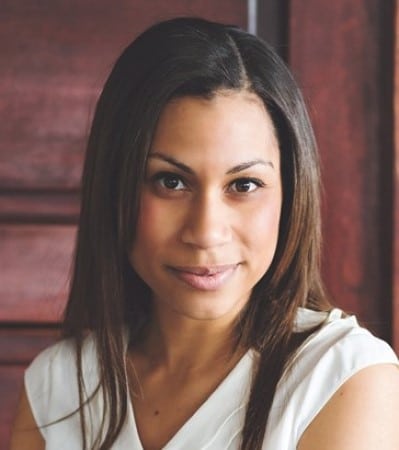
“It is important for students who are training to work in various industries to navigate the research showing inequities in the systems they will one day be serving in,” said Day, also an author and podcaster. “How can we fix what we aren’t willing to admit has been broken? How can we learn from history if we aren’t even willing to engage it?”
The alumni-led open letter calls TU leadership to take “two immediate and urgent actions.” They ask Provost Maxwell to openly apologize for the “unethical and unscrupulous” process of Moore’s termination, and for Moore’s contract to be renewed.
Geoff Taylor, co-organizer of the letter, said they are continuing to raise awareness of it and their intent behind it.
“Injustice has occurred here, both towards Julie Moore and to all of the people of color at the school for whom this decision is an insult to their personhood,” he said. “We refuse to be complicit in that through our silence.”
Day, the daughter of a white mother and a Black father with African-American and Caribbean ancestry, noted some of her students find it challenging to engage with racial justice issues.
“The most difficult conversations are often the most important,” she said. “Micah 6:8 reminds us what the Lord requires of us, ‘To act justly, to love mercy, and to walk humbly with your God.’”
After initial publication of this story, a Taylor University spokesperson provided the following statement in response:
It is the University’s policy not to comment on the specifics of personnel matters. With any contract non-renewal, there are many factors that impact an organization’s decision. We understand and empathize with a faculty member’s disappointment when a contract renewal decision does not go as they had hoped. We are fully dedicated to embracing and celebrating diversity as an intentional community striving to live out the Gospel of Jesus Christ, which transcends all ethnic, cultural, socio-economic, and national divisions.
Correction: An earlier version of this story incorrectly stated that Mark Soderquist was a current Taylor board member.
 Freelance journalist Josh Shepherd writes on faith, culture, and public policy for several media outlets. He and his family live in the Washington, D.C. area.
Freelance journalist Josh Shepherd writes on faith, culture, and public policy for several media outlets. He and his family live in the Washington, D.C. area.




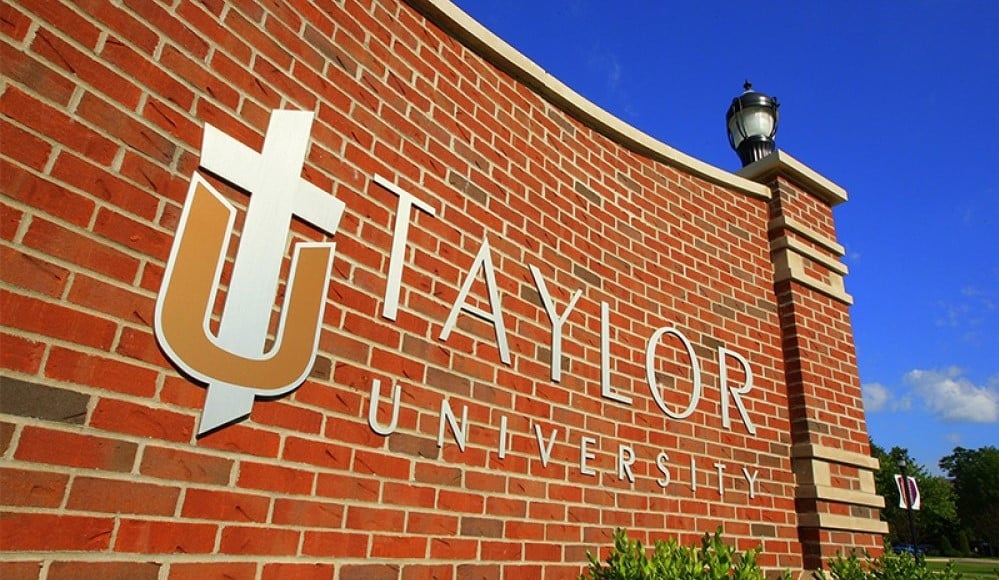
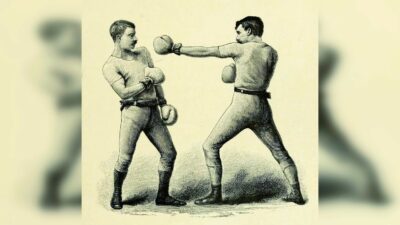

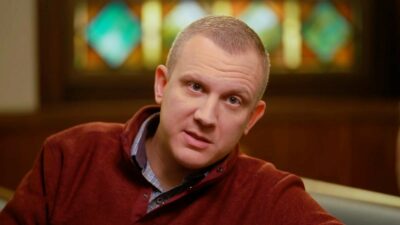












35 Responses
This controversy highlights a behavior among white evangelicals that goes unmentioned: bucketing Black people into “good” or “bad”.
“Good” Black people are those who never mention race, and hold similar views. They are embraced by white evangelicals so they don’t feel racist (“I’m not racist, I am a fan of Clarence Thomas!”), or to validate their viewpoints (“See, that’s not racist! This Black person agrees with me!”). They are welcome in white evangelical circles, and their views are to be openly discussed and shared as proof that these circles are inclusive (bonus points if those views are positioned to belittle “bad” Black people)
“Bad” Black people are those who mention race, hold opposing views and share discomforting perspectives and experiences. They are dismissed with condescending labels (“Race baiter!”). They are to be silenced or canceled, often by diverting attention to perspectives of “good” Black people (“read this book by this good Black person instead!”) or MLK quotes out of context (usually that SAME one quote from that SAME speech, because MLK apparently said nothing else).
It’s clear Tisby is viewed as a “bad” Black person. And we are watching him get canceled by the SAME crowd that would be in an uproar if it happened to a “good” Black person (they would defend the good one as proof they aren’t racist).
Taylor needs to fix this.
Marin,
You have made some interesting points here. I enjoyed reading your comments! What I found astounding, though, was your failure to mention the Bible.
Even once. If I missed it, I apologize in advance. If I didn’t, perhaps you could explain why you left it out? The Bible has a lot to say about racism and God’s views concerning how Christians should treat each other.
And, unfortunately, Jemar Tisby’s approach to racism often strays from Biblical accuracy. I don’t group people into “good” or “bad” categories. Rather, I measure my views based on whether they ring true with the Bible’s. I know you do, too.
So, perhaps Taylor’s decision had more to do with the Bible than race?
Cynthia – Marin is describing experiential realities. They are happening regardless of what the bible says (or what any faction says it means)
Yes, the bible has a lot to say about a lot of topics. I expect Marin & Jemar are just as aware as you are of such things. They, among many others, come to informed conclusions that are different from yours.
Why is your biblical interpretation the only correct one? It really is the height of arrogance.
Why the intolerance? Christian culture was not like this a few decades ago. Christians made room for each other with different viewpoints as to what constituted ‘biblical’. And without the veiled insults.
But really, not everything in life falls neatly into ‘biblical’ categories. Some things in life are especially complex and defy ‘biblical’.
Doesn’t mean people don’t try to reverse engineer them, tortuously jamming them into their vision and version of biblical and start campaigning.
And voila, they now have a righteous cause to channel all their fears & frustrations into!
I’m sure i could take apart your life and come up with whole theses on why various things you do and believe are not ‘biblical’. We all could do this to each other.
But it is both ludicrous and cruel. And totally unreasonable.
Make room for other viewpoints than just your own. Do we really think heaven will be so lonely as to only welcome people just like us & our viewpoint?
“Marin is describing experiential realities. They are happening regardless of what the bible says (or what any faction says it means)”
Scottie:
Nobody is disputing Marin’s life story. Did you think I was?
The Bible is most definitely open to some interpretation, but the interpretations must be consistent. For example, many feel the New Testament erases the Old Testament and live accordingly. What they fail to grasp is that God is consistent – He says himself that He does not change and is the same yesterday, today and forever. This of course means that the New Testament and the Old Testament preach the same message: Repent and be saved.
Perhaps you are struggling with the dividing line between truth and tolerance. Is that possible?
People in heaven will be there because Jesus said they could come.
yes, it’s not hard to see the consistent message of ‘repent and be saved’ in the bible.
but just how far are we going to extend this consistency and how inventive are we going to get?
things have already devolved to extending biblical consistency to gospel-genitals and gospel-orgasm (for men only, of course).
are we really going to go so far as to legislate gospel-race-relations where astonishingly fair and equitable are spiritualized away?
pushing biblical further and further to legislate more and more things turns the bible into a book of magic, and a tool for religious totalism and political opportunists.
…and for pseudo-theologians to come up with weirder and weirder stuff to make a name & income for themselves, and ultimately to control people with.
“The Bible has a lot to say about racism.” Really? What does it say?
I will tell you this much: I have personally heard at least one sermon preached and more than one Bible lesson taught by Southern Baptist pastors (yes, plural), replete and complete with Bible references to passages in both Old and New Testaments, that justify and support (1) the devaluation of “the descendants of Ham” and (2) the institution of human chattel slavery. Are those the Bible references you’re referring to?
I’ll bet many readers of this article wonder whether Taylor University’s administration has fallen prey to the Fox News-ian/Tucker Carlson-ian/white-supremacist “replacement-theory” “anti-CRT” and “anti-woke” fallacies; fallacies which are socially exploitative, blatantly racist, and ignorant of demonstrable historical truths.
I am one of those who read this article and wonder that. Those thoughts are confirmed when I see in the comments a classic case of white Christian passive-aggressive criticism of another person’s comments just because they didn’t quote the Bible. Ick.
Marin –You are categorizing Black people into ‘good’ or ‘bad’ categories. You are saying that the ‘bad’ ones agree with White people while the ‘good’ ones agree with you. Why do you get to make that call? If some black people say something is not racist, why do you call them ‘bad’ or wrong? You are saying black people who agree with Whites are bad –‘they are welcome in white evangelical circles’ as if blacks and whites agreeing is bad. Just an observation.
Scott –
I was saying white evangelicals classify Black people as “good” or “bad” based on if their views on race agree with THEM or not. Has nothing to do with agreeing me. If you’ve read my posts on this site, you’ll see I hold pretty vast views across the political spectrum.
I have experienced having my categorization shift from “good” to “bad” by white evangelicals as I have grown and matured into the Black woman I am today. I grew up in VERY white environments where I did all I could to assimilate so I could fit in: straightening my hair, NEVER mentioning race, joining my white friends in criticizing the “bad” Black people for being “race baiters who just want to complain and avoid working hard”, and oh how I was loved. I was that “Black friend” my white friends loved to quote and point to.
Then as I grew into a young woman – and stopped straightening my hair, immersed myself in Black history and culture across the globe, embraced readings and teachings beyond MLK’s ONE “content of character” quote – I experienced being cast out of white evangelical circles. I was asked “what happened to you, you’re a race baiter now?” and “when did you become so BLACK?”
So your question is for white evangelicals – why do they do this? Why is only that which agrees with white evangelicals acceptable? Why does disagreeing lead to being cast out or labeled?
We’d move forward if we could have and lean into the tough conversations without the thought-stopping labels, even if we agree to disagree.
The school did the right thing. Tisby is worse than a fraud, he betrays the very things he say that he fights for. He is NOT for diversity or racial healing. He is a wolf ripping apart the unity we have in Christ. He seems to undo years and years of progress in race relations. He teaches the very opposite of grace and healing. He does not represent this at all: “By contrast, courageous Christianity embraces racial and ethnic diversity. It stands against any person, policy, or practice that would dim the glory of God reflected in the life of human beings from every tribe and tongue.”
Jemar Tisby, The Color of Compromise: The Truth about the American Church’s Complicity in Racism
Sounds like you have a problem with social justice – especially for black Americans…
Encourage you to read the prophets – re justice….
Right now I just hear regurgitated talking points by those that use the name of Jesus – but simply reflect their own egos. Just more evangelical cancel culture.
Greg:
The truth always stands. The prophets are the ones who spoke the truth and were rejected by those who heard them. They confronted Israel/Judah with their sins and told them judgment was on the way.
It has always been about SIN, not social justice. It has always been about following Christ’s example, not social justice. Jesus took care of the poor. We should, too. Jesus took care of women. We should, too. Jesus took care of wealthy people. We should, too. Jesus loved others as we should. Everyone. Regardless of skin color. Regardless of the past.
And, above all, Jesus came to forgive us. He did not come to condemn the world, as Jemar Tisby and many others seem to believe. He came to save the world. He came to forgive those who call on his name. John 3: 16 and 17 are crystal clear about this.
As Christians, our goal is leading others to Christ, not because of “social justice,” but because we all need a Savior.
For those interested, the following definitions are enlightening:
“Equality means each individual or group of people is given the same resources or opportunities. Equity recognizes that each person has different circumstances and allocates the exact resources and opportunities needed to reach an equal outcome.”
Christ discusses the various talents individuals are given in the Bible. Equal outcomes are never promised. Indeed, Jesus mentions that the Body of Christ is made up of all different kinds of people and all different kinds of outcomes.
Jemar Tisby emphasizes equity and equal outcomes for all. Perhaps that’s one reason he does not belong in a Christian college class. It’s not about being a “good” or “bad” Black person: It’s about being a Biblical one.
That seems like a potentially VERY self-interested definition…
Maybe simply allowing black people into the classroom rather than have them on the outside being able to listen in is just to much “equity”….
Greg:
Are you suggesting Black professors do not exist?
Cynthia –
Black professors exist. But they sure are rare at Christian colleges. Why is that?
I do not oppose using scripture. But you seem to hide behind scripture to avoid addressing HOW and WHY Christians are not obeying scripture.
We must go beyond quoting scripture to make us look and feel good, and explore WHY we as the Body of Christ have a tough time putting scripture into action. Why are our churches and Christian schools THE most racially segregated? Why isn’t the church leading the way in racial reconciliation?
Why do the same white Christians who love evangelizing, volunteering, and adopting children across the globe turn up their nose at going right across town to Black neighborhoods and evangelizing, adopting, and volunteering there? (Ironically, it’s those same white Christians who will complain about foreign policy with “we need to take care of our own first!” Um, but you aren’t.)
Marin:
To try and answer your first question, I took a look at the following statistics from the National Center for Education Statistics:
“In fall 2020, of the 1.5 million faculty at degree-granting postsecondary institutions, 56 percent were full time and 44 percent were part time. Faculty include professors, associate professors, assistant professors, instructors, lecturers, assisting professors, adjunct professors, and interim professors.
Considering full-time faculty only, in fall 2020, nearly three-quarters of faculty were White. Specifically, 39 percent were White males and 35 percent were White females. The next largest racial/ethnic group was Asian/Pacific Islander faculty: 7 percent were Asian/Pacific Islander males and 5 percent were Asian/Pacific Islander females. Four percent of full-time faculty were Black females, and 3 percent each were Black males, Hispanic males, and Hispanic females.1 American Indian/Alaska Native individuals and individuals of Two Races…”
This indicates that Black professors are rare at ALL colleges. Why? I am not sure…
But it’s clear it’s not just at Christian colleges.
Only 3% of TU professors are POC.
Marin,
I agree that most churches are very segregated. I happen to attend one that is trying hard not to be.
I have attended many churches as I have lived in five metro areas in five states over 50 years. Wherever we are on vacation, we attend a local church. I have been to 100% white, black, Asian, and Latino churches. I have been to Mexican birthday parties where we were the only white couple invited. We have been to a Sikh house warming ceremony – again, only white people.
What you describe is not just a “white problem” and not just a Christian problem, it is a human problem.
Question: do churches that aren’t white strive to be more diverse? I hope yes, but my personal experience is that the expectation to diversify is placed much more heavily on white congregations.
Cynthia –
You’re avoiding answering key questions: If Christians are so great at “loving one another” regardless of race, why are the numbers of faculty AND students of color SO FAR BEHIND that of secular universities? Why isn’t the church leading the way here? Why aren’t our campuses (Christian universities and churches) better reflecting the diversity of believers than secular circles? (I know, I said the dreaded “d” word).
I encourage you to read about the experiences of students and faculty of color at Christian universities. It should be alarming. We should expect our schools to lead the way in racial reconciliation. Instead, they are often lagging behind secular schools. Why would a Black believer feel more comfortable in a secular environment than a Christian school?
Ed Gilbreath writes a great book “Reconciliaton Blues” that points to the challenges facing racial reconciliation at evangelical schools, publications and the like – all rooted in his experience in these circles. Just a few weeks ago, the NY Times, PBS and other outlets did some great profiles on Black evangelicals and how they are feeling isolated and/or torn in today’s church that is leaning towards Christian nationalism, rife with political idolatry, full of passive aggressive micoraggressions, and stubborn about deflecting, defending, and denying the sin of racism.
So you’re quoting scripture (I know that feels great) but not answering why it isn’t being applied (THIS is where the discomfort is).
Hi One Olsen –
I appreciate your question. For context, I am a Black woman who has been active in predominantly white churches for the last decade. The Black church has been very active and vocal about wanting diverse members and allies. All of the Black churches I have been a part of had a contingency of faithful non-Black members. Yet I have found the biggest challenges in diversifying the Black church to be in two areas:
1. Difference in belief around the role of the church. The Black church has been at the center of activist movements since its beginning. It is preached that a big part of serving Christ involves fighting for the rights of the oppressed, overlooked, underserved and unheard. When I joined white churches, I was surprised at how this sort of activism is looked down upon. The focus is solely on saving souls, because “that will fix everything.” I believe it’s not an “either/or” but a “yes/and.”
2. Discomfort with being in the minority. A lot of white believers – who expect me to be ok with being “the only” in the room – are NOT ok when they are the only. There is a great lesson in empathy here. But at white churches, I often hear the “code” language of “we want to keep the feel of the church” when too many people like me show up.
I do think the impetus to integrate is on white churches because of location (more likely to be downtown) and resources (having more money and people – they’ll pay downtown rent, send ministry teams to Africa and build new campuses in the suburbs, but won’t go across town).
I do think everyone needs to meet in the middle.
Maybe it’s because they are not welcome there. The panthers and other black Marxist groups have preceded them and demonized the community against them and made them unwelcome. They are currently doing this now with the group NO White Saviors and other Marxist cover groups like it. They stir up the community against the Christan missionaries, get the. Kicked out. Then leave the poverty-stricken community with no help at all once the missionaries are gone. But, mission accomplished for the Marxist! They got control of the area which how the game is played. Now they are doing this in the Christian colleges it seems. Going back to a horrible time in history opening up old wounds yet all who committed tjise acts are dead. But they have to keep the hate alive so they ca. Continue to be victims. NO ONE can heal if they keep looking back ND they want to stay a victim!
Hi, Cynthia,
Please enlighten me as to where in the Gospels Jesus speaks of “the Body of Christ “ in the way you refer to it here. My understanding is that this is generally an early church reference used as a metaphor for said church. The Christian church did not exist in the lifetime of Jesus. Are you confusing early church/Pauline teaching with the words of Jesus?
You seem to be contradicting your own definition of equality. People of color have never been given the same resources and opportunities in this country. So you are basing your comments on a false premise and your white privilege is showing badly.
Just so you know I am seminary trained (at conservative seminaries) and ordained clergy. Fortunately God’s Spirit has led me far away from views like yours.
Hello Ivy,
You seem to be confusing “God’s spirit” with Satan’s. Beware. The Bible’s words are for all people everywhere. Even little children can grasp the gospel, it’s that simple. Claiming to be “seminary trained” does not mean you are a believer. Jesus was constantly contradicting the claims of those who had the greatest training – Pharisees in particular.
Before answering the specific questions you posed, I would point you to the life of Paul. It took Christ’s transforming power to change him. Have you been born again?
Oh, Cynthia,
You do not even know me yet you question my relationship with God. Rather arrogant of you, I think. Therefore, I don’t think we can have a respectful conversation.
Correction to Cynthia’s definition of equity:
Equity recognizes each person has different circumstances and allocates resources needed so they have same access to OPPORTUNITY. It is not about outcomes.
Equality gives everyone the EXACT SAME bicycle. Doesn’t consider height differences, capabilities, or disabilities.
Equity adjusts the height of the bicycle for short or tall people, provides bike riding lessons for those who never learned, and gives those who are disabled an appropriate vehicle (wheelchair, etc) so ALL can participate in the race. From that point on, it’s about your training and effort to complete.
This is why it baffles me that Christians HATE the concept of equity. Instead, many point to a disabled person getting a wheelchair and complain how it’s not fair. SMH.
Marin:
I am sorry, but I will have to respectfully disagree with your redefinition of equity. Those who support the current iteration of “equity” attempt to erase the lines separating differently-talented and gifted people. It is why we see the push in our public schools to eliminate gifted programs and grades. It is why we see quotas beginning to rear their ugly head in hiring practices again. It is why we see the attempt to dumb down admissions standards in medical school and colleges across our country.
Outcomes are never going to be identical for all people, no matter how hard we try to make them so. As a retired teacher, I can tell you that not all students are created with the same gifts.
It is critical to recognize that God equips all of us very differently.
When I say “equality,” I am referring to EQUAL rights, not special rights for some. If an ostrich is asked to fly, he will not be able to do so unless placed in a jet. And, even then, the ostrich isn’t really flying, just taking a ride. However, if you ask an ostrich to run a race, that bird can move!
Similarly, we can prop up students and try to help them into college by making it easier to get in and by giving them “special” classes once they arrive, but they won’t survive college without the skills necessary to complete a college degree. Equity says everyone belongs in college. Reality says that’s simply a false premise.
Cynthia –
I am not redefining anything. I hold two master’s degrees, a certificate, and am the author of a published white paper on DEI. You have twisted what equity and equality means to suit your needs. There are many academically published illustrations defining equality vs equity using the same bicycle analogy I just provided. It is about equal ACCESS to opportunity (a bicycle that meets your needs), NOT equal outcome (you still gotta pedal to win the race). If you lose, you lose. But why should you be denied an opportunity altogether? And who gets to determine that?
You have read a LOT of politicized redefinitions of equity (same with “woke”), all designed to get people upset about providing equal access to opportunity. Ironically asking an ostrich to fly actually supports the definition of equity. If the rules state a bird MUST fly in order to even compete, does that mean the ostrich doesn’t even deserve a shot? Why doesn’t it deserve what it needs to even be considered?
BTW, quotas have been illegal since 1979; read the Bakke supreme court ruling. So using that term is both incorrect and manipulative.
Equity does NOT say everyone belongs in college. It says everyone deserves equal ACCESS – be it community college, trade school, or a college/university. Equity is going to students who don’t even know the difference, and equipping them to apply. What they do with it is up to them.
It is disturbing that a teacher believes otherwise; explains why so many teachers just look at students and determine who “deserves” to be educated.
What do you do with Jesus’ parable about the workers in the field coming in at different times receiving the same pay? That seems like the definition of equity to me- different supports to achieve equal outcome. Not to mention the entire idea of forgiveness of sins- a gossiper and a murderer receive the amount of forgivness that they need to achieve an equal relationship with God. Jesus seems to be all about equity, recognizing that people have different starting points, barriers, and advantages in life.
“People of color have never been given the same resources and opportunities in this country.”
Are you sure? Multiple groups of people have come to this nation and done very well. People of color have also done very well. Statistically, the greatest number of advanced degree holders in the USA are “people of color.”
Are you basing your statement on economic outcomes? Redlining from the past? Public school outcomes?
Before we can further this discussion, you should probably provide some proof for your statement.
Redlining “from the past”? Oh, Cynthia….you need to open your eyes to what’s happening TODAY.
Oh, Marin…
SIN is happening today. It happened yesterday and will continue tomorrow. What outcomes do you seek for your Black brothers and sisters? Do you seek their welfare or do you seek their harm? What would help them the most? Do you think that by cutting down the predominant culture here in the United States you can somehow make a new one that will result in better outcomes for Black Americans?
What exactly do you seek? Do you seek wealth? Prosperity? Equal outcomes? Life in a white neighborhood?
If I were going to change anything to help my Black brothers and sisters, it would be our public school system. I recently read that a majority of those who graduate from public high schools in Chicago (and other large cities) cannot read at grade level.
Let that tragedy sink in: THEY CANNOT READ AT GRADE LEVEL.
How in the name of both equity and equality are those kids going to make it in college? How are they even going to make it TO college? With props?
Cynthia –
Confessions are to be specific. In scripture, David confessed specific sins like adultery, not saying “well God, it’s all sin.” Why does specifically calling it what it is -racism- make you uncomfortable?
What I want for my Black brothers and sisters in Christ is to be loved and valued for JUST AS THEY ARE, created in His image. I’m tired of them having to prove their worth, as if just existing isn’t enough. For example, here in Chicago, we spend 3x on students in north side public schools (white) versus students in south and west side schools (Black). While we discuss giving north side students a tablet PLUS a laptop and adding 4 new AP courses, we say it’s not worth it to provide all south and west side schools basic wifi. Yes, I have heard this. What message does that send to Black children? Oh wait, they have to PROVE their worth. (Back to that “good” Black person argument again). Meanwhile, everyone believes north side kids are better, when they just have more resources. Why wouldn’t you want Black kids to AT LEAST have the same resources?
It’s not about “cutting down” predominant culture, but expanding it to include others. I don’t want Black children to have to straighten their hair, lighten their skin, and assimilate into the “main” culture to be accepted as “good.” (I did this up until I was 29, and my self esteem as a dark, Afro-haired girl was in the toilet). I don’t want “Christians” to label Disney as “woke” for daring to cast a Black princess, because God forbid the heroine looks like me. I want being and seeing Black as it is to be ok.
“What I want for my Black brothers and sisters in Christ is to be loved and valued for JUST AS THEY ARE, created in His image.”
Me, too. We’re on the same page.
” I don’t want Black children to have to straighten their hair, lighten their skin, and assimilate into the “main” culture to be accepted as “good.” (I did this up until I was 29, and my self esteem as a dark, Afro-haired girl was in the toilet).”
I don’t want Black kids to do ANY of those things, either. I am sorry you put yourself through that. I did not know because I grew up out of the USA and did not experience what you describe. I am so sorry you felt you had to do that – that’s just wrong.
We’re on the same page.
“I don’t want “Christians” to label Disney as “woke” for daring to cast a Black princess, because God forbid the heroine looks like me. I want being and seeing Black as it is to be ok.”
I’m pretty sure Christians are far more upset about Disney’s LGBTQ stance and the way they are pushing this agenda on to the most vulnerable among us, our little kids. The Buzz Lightyear movie is just one example. I haven’t heard too much about the Black princess – perhaps you could fill me in? I have a feeling we’re on the same page here, too.
I think where we differ is in our approach to how we get to a place where ALL people in the USA feel valued and loved, regardless of what they look like. Am I right?
Cynthia –
I do think we are on the same page. The challenging piece is that what is providing equitable access or representation to otherwise marginalized and disadvantaged groups will feel like “taking away” from groups who are just used to things going their way.
For example, I can go back to the backlash about Halle Bailey’s casting as the Little Mermaid. You can see entire social media pages and campaigns led by Christians and conservatives railing against this as signs of Disney going “woke” (as stated before, this is an improper use and weaponizing of this word). Some even question what they are going to tell their children about how Ariel “no longer looks like them.” The actress also mentioned taking breaks from social media due to death threats over her casting.
My reply: this isn’t taking anything away from any child. These parents and their kids are just used to the majority of Disney leads being white. Adding ONE Black lead (among HUNDREDS over the years) is not a crisis. Well, it shouldn’t be. If it is, then there are other problems going on.
I also say this as someone who cares very little about LGBTQ characters being in media; they are already around us. Seeing one on TV doesn’t make me want to change my sexuality; I was a fan of “Will and Grace” for most of its run, and I’m still straight!
Friends daughter went to Taylor. Came home one summer and started telling me we all had white privledge. I gently asked her to define white. She could not articulate a definition. Asked if her family had worked hard, made sacrifices, made moral choices to have an intact family that could afford to send her to Taylor. She started to recognize it was more about the choices her family had made than anything being handed to them based on the hue of skin color. Teach kids critical thinking, not CRT.